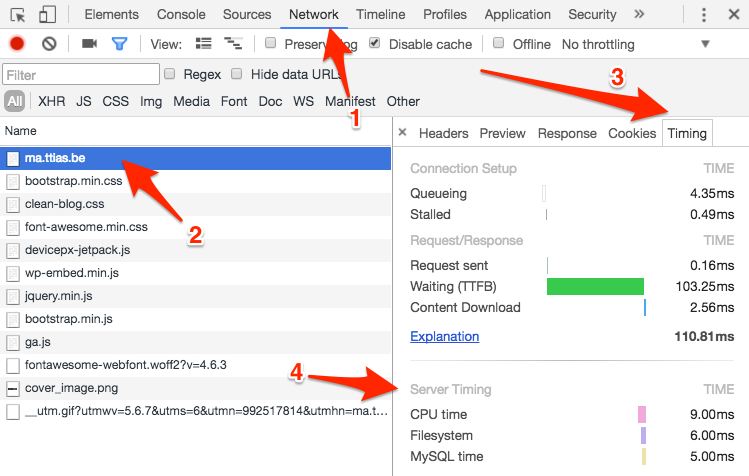A lightweight IPFS Gateway daemon backed by a remote data store.
IPFS Stewards
bifrost-gateway provides a single binary daemon implementation of HTTP+Web Gateway Specs.
It is capable of serving requests to:
- path gateway at
127.0.0.1 - subdomain gateway requests with
Host: localhost - DNSLink gateway based on
Hostheader
Supported response types include both deserialized flat files, and verifiable Block/CAR.
For more information about IPFS Gateways, see:
- Specifications at specs.ipfs.tech/http-gateways
- Conformance tests at ipfs/gateway-conformance
- Go implementation at boxo/gateway
$ go build
$ ./bifrost-gateway --helpSee ./bifrost-gateway --help and ./docs/environment-variables.md
Official Docker images are provided at hub.docker.com/r/ipfs/bifrost-gateway.
- 🟢 Releases
latestandreleasealways point at the latest releasevN.N.Npoint at a specific release tag
- 🟠 Developer builds
main-latestalways points at theHEADof themainbranchmain-YYYY-DD-MM-GITSHApoints at a specific commit from themainbranch
⚠️ Experimental, unstable buildsstaging-latestalways points at theHEADof thestagingbranchstaging-YYYY-DD-MM-GITSHApoints at a specific commit from thestagingbranch- This tag is used by developers for internal testing, not intended for end users
When using Docker, make sure to pass necessary config via -e:
$ docker pull ipfs/bifrost-gateway:release
$ docker run --rm -it --net=host -e PROXY_GATEWAY_URL=http://127.0.0.1:8080 ipfs/bifrost-gateway:releaseSee ./docs/environment-variables.md.
All you need is a trustless gateway endpoint that supports verifiable response types.
The minimum requirement is support for GET /ipfs/cid with application/vnd.ipld.raw (block by block).
To run against a compatible, local trustless gateway provided by Kubo or IPFS Desktop:
$ PROXY_GATEWAY_URL="http://127.0.0.1:8080" ./bifrost-gatewaySee Proxy Backend in ./docs/environment-variables.md
Saturn is a CDN that provides a pool of trustless gateways.
bifrost-gateway supports it via the Caboose backend,
which takes care of discovering and evaluating Block/CAR gateways (in Saturn called L1 nodes/peers) for increased availability.
See Saturn Backend in ./docs/environment-variables.md
See GOLOG_LOG_LEVEL.
For tracing configuration, please check
boxo/docs/tracing.md
on how to generate the traceparent HTTP header in order to be able to easily
identify specific requests.
This is WIP, but the high level architecture is to move from
Old Kubo-based architecture:
graph LR
A(((fa:fa-person HTTP</br>clients)))
K[[Kubo]]
N(((BGP Anycast,<br>HTTP load-balancers,<br>TLS termination)))
D(((DHT)))
P((( IPFS<br>Peers)))
A -->| Accept: text/html, *| N
A -->| Accept: application/vnd.ipld.raw | N
A -->| Accept: application/vnd.ipld.car | N
A -->| Accept: application/vnd.ipld.dag-json | N
A -->| Accept: application/vnd.ipld.dag-cbor | N
A -->| Accept: application/json | N
A -->| Accept: application/cbor | N
A -->| Accept: application/x-tar | N
A -->| Accept: application/vnd.ipfs.ipns-record | N
A -->| DNSLink Host: en.wikipedia-on-ipfs.org | N
A -->| Subdomain Host: cid.ipfs.dweb.link | N
N ==>| fa:fa-link HTTP GET <br> Content Path | K
K -.- D
K ===|fa:fa-cube bitswapl | P
P -.- D
New Rhea architecture:
graph LR
A(((fa:fa-person HTTP</br>clients)))
B[[bifrost-gateway]]
N(((BGP Anycast,<br>HTTP load-balancers,<br>TLS termination)))
S(((Saturn<br>CDN)))
I[[IPNI]]
D(((DHT)))
P((( IPFS<br>Peers)))
A -->| Accept: text/html, *| N
A -->| Accept: application/vnd.ipld.raw | N
A -->| Accept: application/vnd.ipld.car | N
A -->| Accept: application/vnd.ipld.dag-json | N
A -->| Accept: application/vnd.ipld.dag-cbor | N
A -->| Accept: application/json | N
A -->| Accept: application/cbor | N
A -->| Accept: application/x-tar | N
A -->| Accept: application/vnd.ipfs.ipns-record | N
A -->| DNSLink Host: en.wikipedia-on-ipfs.org | N
A -->| Subdomain Host: cid.ipfs.dweb.link | N
N ==>| fa:fa-link HTTP GET <br> Content Path | B
B ==>|fa:fa-cube HTTP GET <br> Blocks | S
S -.- I
I -.- D
D -.- P -.- I
P ===|fa:fa-cube the best block/dag <br> transfer protocol | S
bifrost-gateway nodes are responsible for processing requests to:
- path gateway (like
ipfs.io) - subdomain gateway (like
dweb.link) - selected DNSLink websites on their own domain names.
Caveats:
- IPFS Gateway interface based on reference implementation from boxo/gateway.
- IPFS Backend based on https://saturn.tech and HTTP client talking to it via caboose with
STRN_LOGGER_SECRET.- Learn more at Project Rhea (decentralized IPFS gateway)
- Remaining functional gaps facilitated by:
- (initially) temporary delegation to legacy Kubo RPC (
/api/v0) athttps://node[0-3].delegate.ipfs.ioinfra (legacy nodes used by js-ipfs, in process of deprecation). - (long-term)
IPNS_RECORD_GATEWAY_URLendpoint capable of resolvingGET /ipns/{name}withAccept: application/vnd.ipfs.ipns-record
- (initially) temporary delegation to legacy Kubo RPC (
Some high level areas:
mindmap
root[bifrost-gateway]
(boxo/gateway.IPFSBackend)
Block Backend
CAR Backend
Ephemeral Storage
Block Cache
Exchange Backend
Plain HTTP Fetch
Caboose Saturn Fetch
Resolving Content Paths
Raw
CAR
UnixFS
IPLD Data Model
[DAG-JSON]
[DAG-CBOR]
Web
HTTP Host Header
HTML dir listings
index.html
_redirects
HTTP Range Requests
Namesys
DNSLink
EoDoH<br>ENS over DNS over HTTPS
IPNS Records
Metrics and Tracing
Prometheus
Counters
Histograms
OpenTelemetry
Spans
Exporters
Trace Context
Contributions are welcome! This repository is part of the IPFS project and therefore governed by our contributing guidelines.










